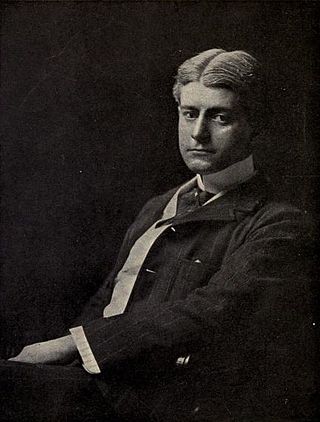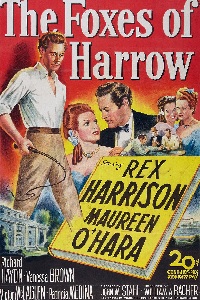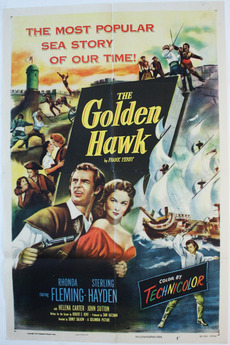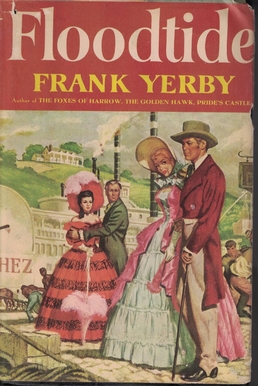
Fyodor Mikhailovich Dostoevsky, sometimes transliterated as Dostoyevsky, was a Russian novelist, short story writer, essayist and journalist. Dostoevsky's literary works explore the human condition in the troubled political, social, and spiritual atmospheres of 19th-century Russia, and engage with a variety of philosophical and religious themes. His most acclaimed novels include Crime and Punishment (1866), The Idiot (1869), Demons (1872), and The Brothers Karamazov (1880). His 1864 novella, Notes from Underground, is considered to be one of the first works of existentialist literature. Numerous literary critics regard him as one of the greatest novelists in all of world literature, as many of his works are considered highly influential masterpieces.

Benjamin Franklin Norris Jr. was an American journalist and novelist during the Progressive Era, whose fiction was predominantly in the naturalist genre. His notable works include McTeague: A Story of San Francisco (1899), The Octopus: A Story of California (1901) and The Pit (1903).
This article contains information about the literary events and publications of 1991.
This article contains information about the literary events and publications of 1957.

Margaret Walker was an American poet and writer. She was part of the African-American literary movement in Chicago, known as the Chicago Black Renaissance. Her notable works include For My People (1942) which won the Yale Series of Younger Poets Competition, and the novel Jubilee (1966), set in the South during the American Civil War.

Frank Garvin Yerby was an American writer, best known for his 1946 historical novel The Foxes of Harrow.
Edwin Greene O'Connor was an American journalist, novelist, and radio commentator. He won the Pulitzer Prize for Fiction in 1962 for his novel The Edge of Sadness (1961). His ancestry was Irish, and his novels concerned the Irish-American experience and often dealt with the lives of politicians and priests.
This is a list of bestselling novels in the United States in the 1940s, as determined by Publishers Weekly. The list features the most popular novels of each year from 1940 through 1949.
This is a list of bestselling novels in the United States in the 1950s, as determined by Publishers Weekly. The list features the most popular novels of each year from 1950 through 1959.

The Foxes of Harrow is a 1947 American adventure film directed by John M. Stahl. The film stars Rex Harrison, Maureen O'Hara, and Richard Haydn. It is based on the novel of the same name by Frank Yerby.

The Golden Hawk is a 1952 American historical adventure film directed by Sidney Salkow and starring Rhonda Fleming, Sterling Hayden and John Sutton. It is based on the 1948 novel of the same name by Frank Yerby.

Captain Rebel is a 1956 historical novel by the American writer Frank Yerby. It was one of his less critically-acclaimed novels, part of a trend that saw his populist novels draw increasingly less favorable reviews despite their success with readers. Like many of his works it is set in the nineteenth century American South.

Pride's Castle is a 1949 historical novel by the American writer Frank Yerby. It was ranked ninth on the Publishers Weekly list of bestselling novels that year. Like many of his books it is set in nineteenth century America. Although it was his first novel set in the North, the protagonist is a Southerner. It was adapted as an episode of the The Philco Television Playhouse that aired on NBC in September 1949, with Anthony Quinn, Catherine McLeod and Louise Allbritton in the cast.

Bride of Liberty is a 1954 historical novel by the American writer Frank Yerby. Along with Benton's Row it was received by critics as "third-rate pulp fiction", as part of a general downturn in the reputation of Yerby's novels. It also did not feature on the Publishers Weekly list of bestselling novels which Yerby's works had regularly appeared over the previous few years. It was originally written by Yerby for his own children.

The Devil's Laughter is a 1953 historical adventure novel by the American writer Frank Yerby. One reviewer described it as having "more dazzle than depth". It is set in Europe of the late eighteenth century in contrast to Yerby's more usual setting of nineteenth century America.

Floodtide is a 1950 historical novel by the American writer Frank Yerby. It was ranked seventh on the Publishers Weekly list of bestselling novels that year. Like many of his works of the era it is set in the South during the nineteenth century.

The Vixens is a 1947 historical novel by the American writer Frank Yerby. It was his second published novel and like the first, The Foxes of Harrow, to which it was a sequel it was a commercial success and was ranked fifth on the Publishers Weekly list of bestselling novels that year. Yerby himself disliked the book and later described it as his worst novel.

The Golden Hawk is a 1948 historical novel by the American writer Frank Yerby. It was his third published novel, and was a popular success ranking sixth on the Publishers Weekly list of bestselling novels that year.













